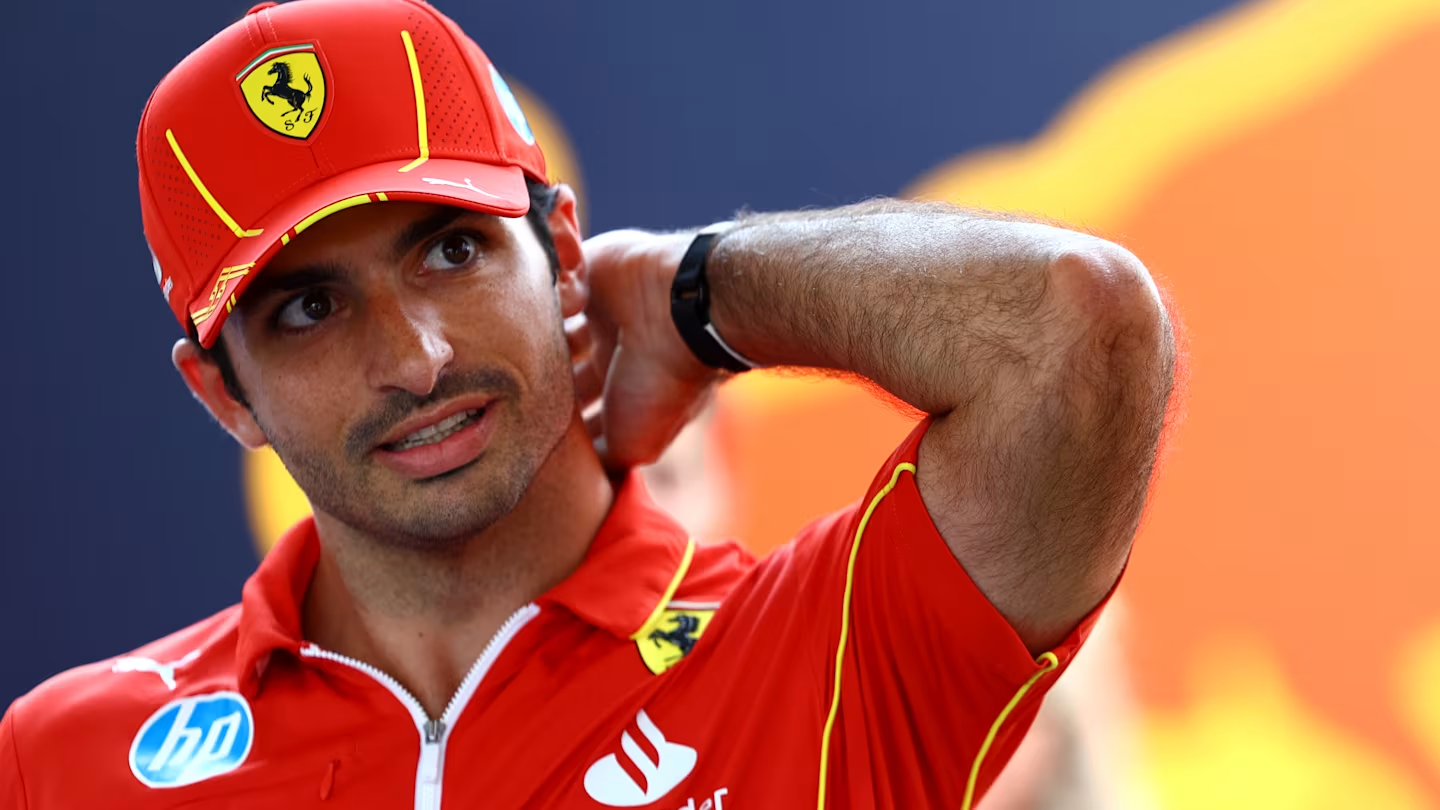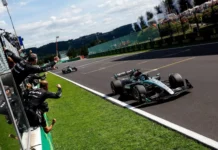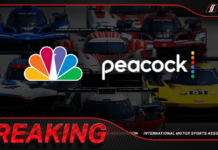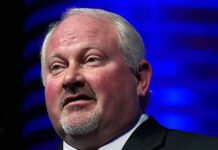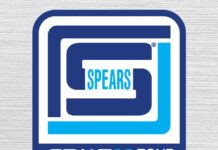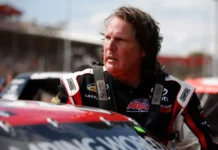
Cup team executives say they need additional revenue streams to fix a “broken” business model and said NASCAR recently rejected their seven-point proposal that would have addressed those concerns.
“We’re very far apart,” Jeff Gordon, vice chairman of Hendrick Motorsports, said of the teams and NASCAR.
Gordon is one of four members of the negotiating committee for teams. They spoke with select media members for more than 90 minutes Friday to share their concerns. Gordon was joined by Curtis Polk, an investor in 23XI Racing and Michael Jordan’s longtime business manager, Joe Gibbs Racing President Dave Alpern and RFK Racing President Steve Newmark.
“The economic model is really broken for teams,” Polk said.
Polk declined to say what the proposal to NASCAR included, but he said that all Cup organizations need help.
“The sustainability of the teams in this sport is not very long-term unless we have a fundamental change in the (business) model,” he said.
Gordon stated that Hendrick Motorsports, which has won the past two Cup championships, will not make a profit this season. He also said that it had been “awhile” since the organization had done so.
“Where we’re currently at is not sustainable,” Gordon said.
Newmark said the feedback from the majority of the 16 teams that own the 36 charters in Cup is that “they continue to lose money in this economic model.”
NASCAR issued a statement Friday afternoon in response to the concerns stated by the team executives: “NASCAR acknowledges the challenges currently facing race teams. A key focus moving forward is an extension to the Charter agreement, one that will further increase revenue and help lower team expenses. Collectively, the goal is a strong, healthy sport, and we will accomplish that together.”
Unlike other sports leagues, which receive numerous revenue streams from leagues, NASCAR is built differently.
The sport is owned by the family of founder Bill France Sr. The France family also owns a majority of the tracks. Speedway Motorsports also owns a collection of tracks, while a few are independent.
Polk said that the group’s calculations showed that 93% of the sport’s value resides with NASCAR and the tracks. The remaining 7% is with teams.
“There’s not a sport that I know of where the inequity is so severe,” Polk said.
He also said that the sport is a “money-printing machine, but the teams put on the show. The teams are the content. The drivers, the team owners and the cars are what fans turn on for every week and what the media companies pay the big money.”
NASCAR, tracks and teams share TV revenue — a 10-year deal estimated at $8.2 billion that will end after the 2024 season.
For each race, 65% of the TV money goes to the tracks, 25% goes to teams and 10% goes to NASCAR.
After Dover Motorsports was sold to Speedway Motorsports in 2021, it provided financial projections for 2021-2024 for Dover Motor Speedway and Nashville Superspeedway.
The estimated revenue from broadcasting rights for one race at Dover and one at Nashville in 2021 was $37 million. That’s after NASCAR takes its 10%. With NASCAR’s cut included, that is $40.7 million total.

The approximate breakdown of that $40.7 million would be $26.45 million to the tracks, $10.55 million to teams and $3.7 million to NASCAR based on the model of 65% to tracks, 25% to teams and 10% to NASCAR for those two events (one at Dover and one at Nashville).
None of the negotiating committee members cited a specific percent of the TV money wanted but talked of a better revenue stream model.
With teams getting a smaller percentage of the TV money, they have to rely on sponsorship to cover costs.
Newmark said that sponsorship makes up about 60-80% of a team’s overall revenue. He noted how that is out of line with other sports.
The Fenway Sports Group, which is a co-owner of RFK Racing, also owns the Boston Red Sox in Major League Baseball, the Pittsburgh Penguins in the National Hockey League and Liverpool Football Club in the English Premier League.
Newmark noted that in Major League Baseball, 8-12% of a team’s overall revenue comes from sponsorship. In the NHL, that figure is 17-18% and for the Premier League it is closer to 26-27%.
All those totals are significantly lower than the NASCAR model. The impact of sponsorship on teams was evident this year with Joe Gibbs Racing losing Kyle Busch after this season.

Long-time sponsor Mars, Inc. announced last December that it would not return to the team or sport after this season. That began a search by JGR for a company that could invest an estimated $20 million into the No. 18 team and Busch.
After a deal with another company fell through earlier this year, Gibbs was left without a sponsor and unable to sign Busch — the only active multi-time champion in the sport — to a new contract.
The end result is that Busch and JGR will part ways after this season in one of the biggest driver moves in years.
“There is no other pro sport where the signing of your top athlete is completely dependent on the decision of someone at a brand,” Alpern said. “Imagine if Aaron Rodgers of the (Green Bay) Packers had a contract held up because the stadium sponsor hadn’t made their decision on what they’re doing.
“That’s what we’re faced with as race teams. And, if I’m honest, we’ve almost become full-time fundraisers. We spend the majority of our time raising money, not to make money (but) to survive.”
23XI Racing came into the sport after financial problems for another team. Germain Racing was going to lose sponsor GEICO after the 2020 season. Unable to find a sponsor to take over, the team shut down, selling its charter to 23XI Racing. That provided the charter for Bubba Wallace in the team’s first season.

23XI Racing purchased a second charter in December 2021, paying $13.5 million for StarCom Racing’s charter, making it the most expensive charter purchased.
Charters were created before the 2016 season to give teams value after seeing so many teams close shop and sell parts and pieces for significantly reduced prices. While talk in the garage is that charter prices are nearing $25 million with so few looking to sell, it is still a small value when compared to other sports leagues. The current charter deal expires after the 2024 season.
While not a direct comparison, the value of a NASCAR team is well below other sports teams. In 2021, Forbes ranked all 32 NHL franchises in value. Ranking last was the Arizona Coyotes, which had a value of $400 million.
Polk sees where NASCAR team valuation is at and where it can be. He said the maxim is “all well-managed teams should be able to compete for a Cup championship and make a reasonable profit.”
As for “reasonable profit,” Polk said: “We’re not looking to make two, three, four times our money in a given year but if we can squeak out a little bit of a profit after paying all of our overhead, I think everybody will be happy.
“When you have a model like that, it will attract investors, like myself and Michael Jordan.”
The teams say they keep hearing from NASCAR to cut costs but suggest that they have done so. Additional cuts could impact what fans see on the track.
Polk said that with the proposal from teams rejected, they received a proposal from NASCAR “with a minimal increase in revenue.
“The emphasis was on cutting costs dramatically. With the Next Gen car, the costs of the car are somewhat fixed. So what would that lead to? It would lead to massive layoffs at our teams.”
Alpern raised an issue with the notion of additional cuts.
“When it comes to cost-cutting, one of the things that’s kind of surprising in our sport is that when any of the other stakeholders spend money on something, an upgrade, signing someone from another league, it’s viewed as an investment within the sport.
“But when teams spend money, it’s we’re reckless and you need to cut. We’re investing in our business as well, whether it’s people, our facilities, we’re all trying to grow the sport and the answer to everything is not cut costs. I don’t know of another sports league or business, for that matter, who came to prosperity through cutting.”




